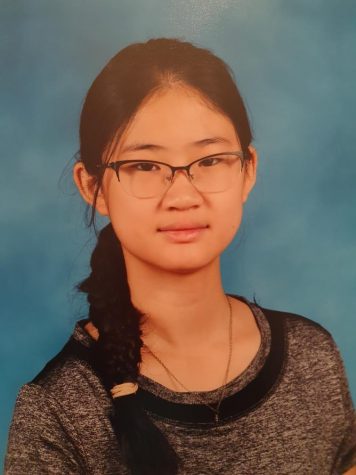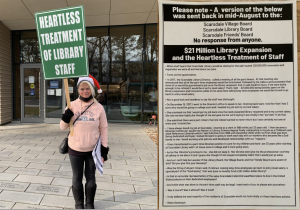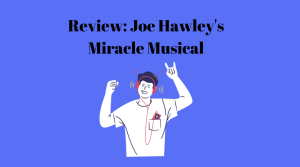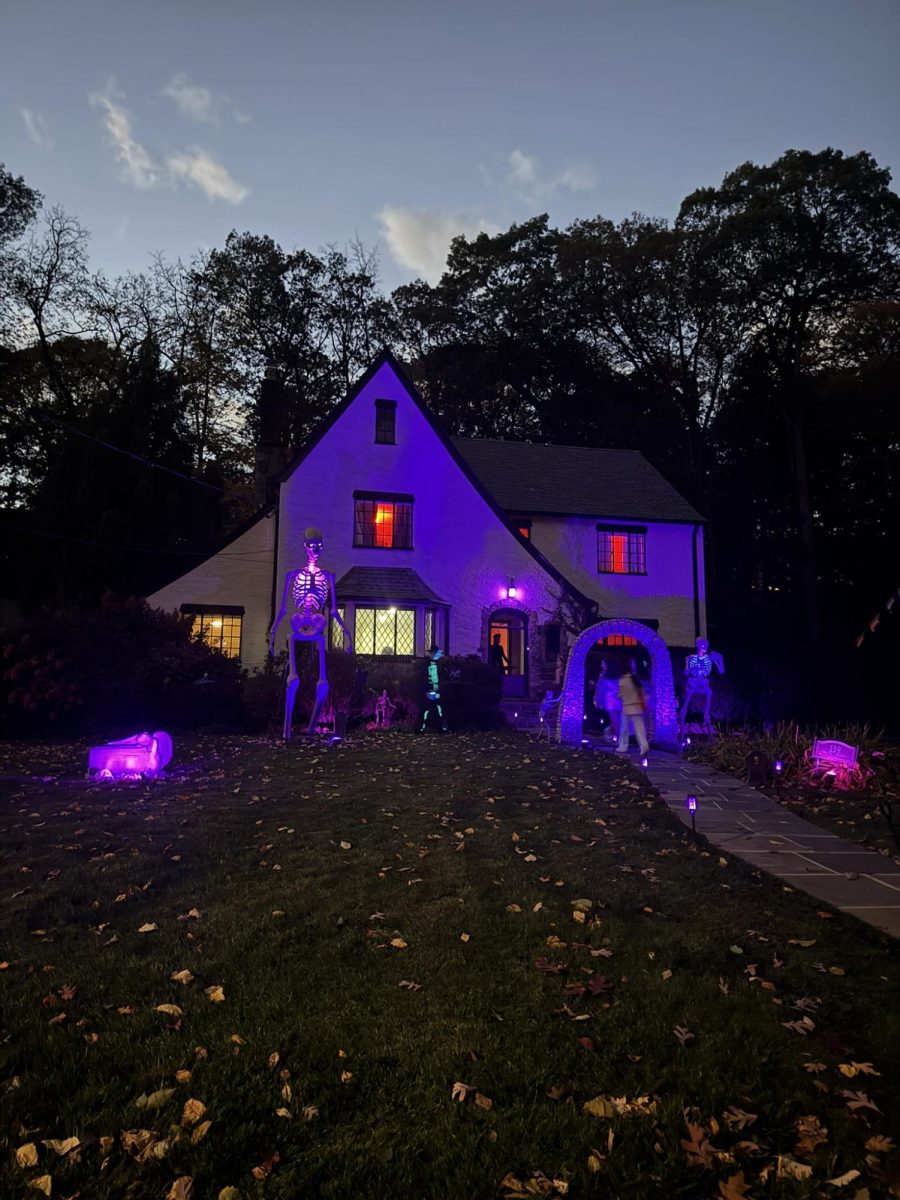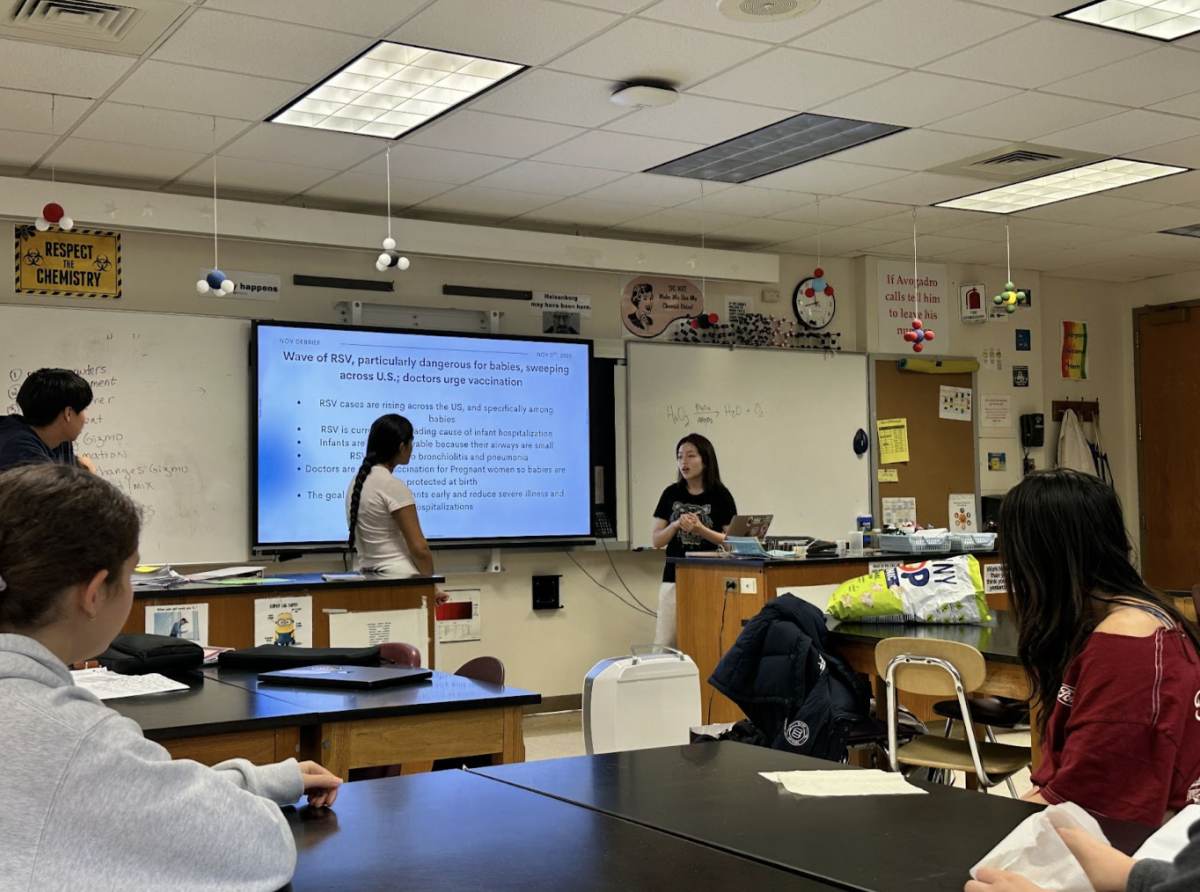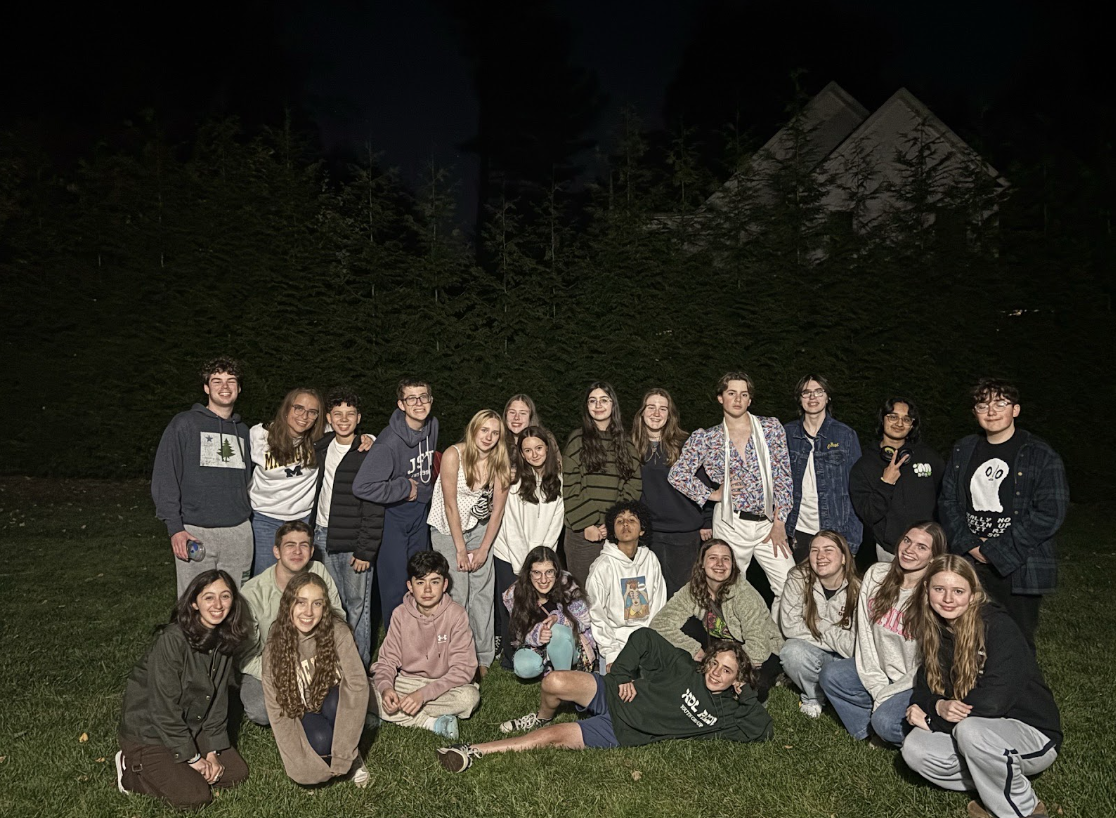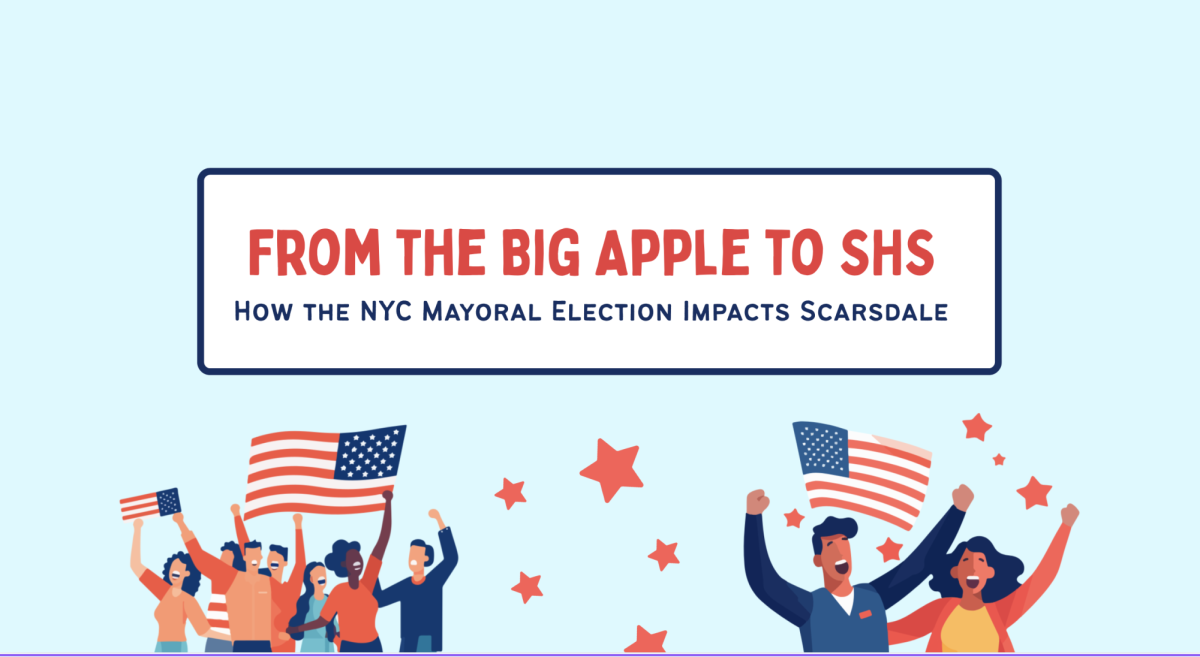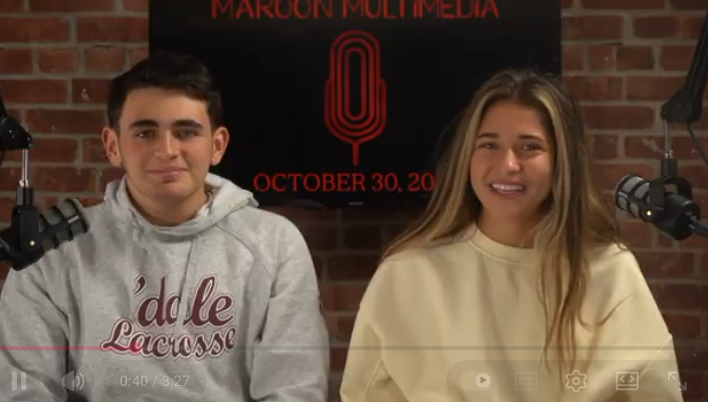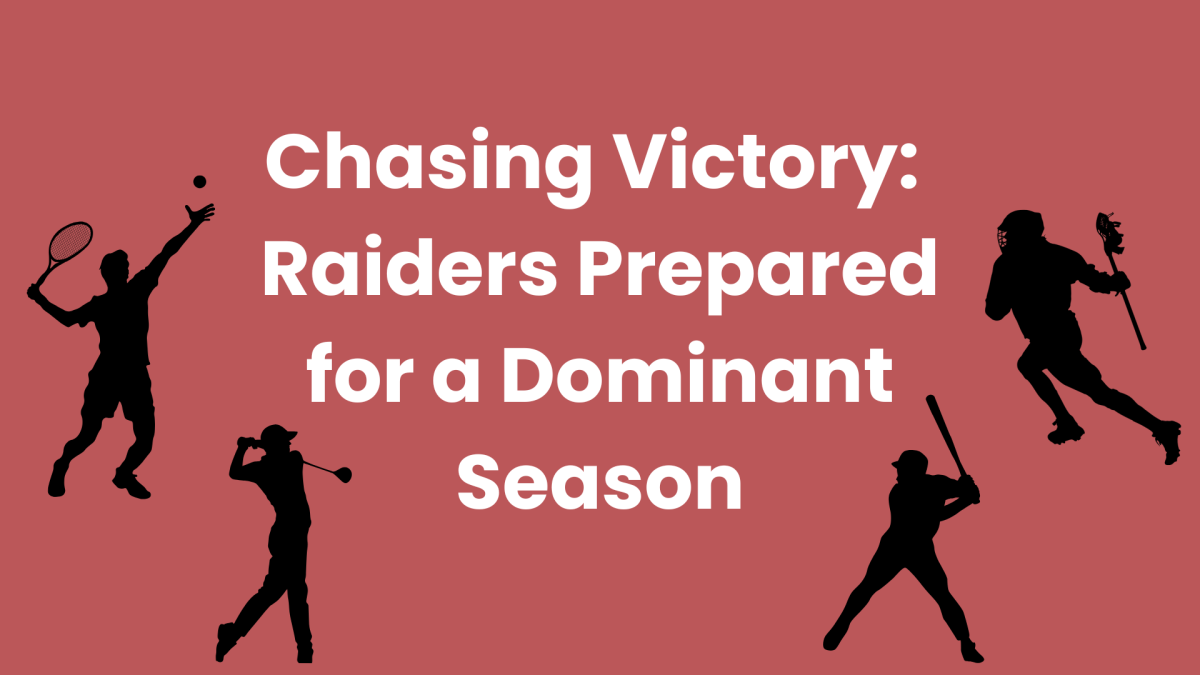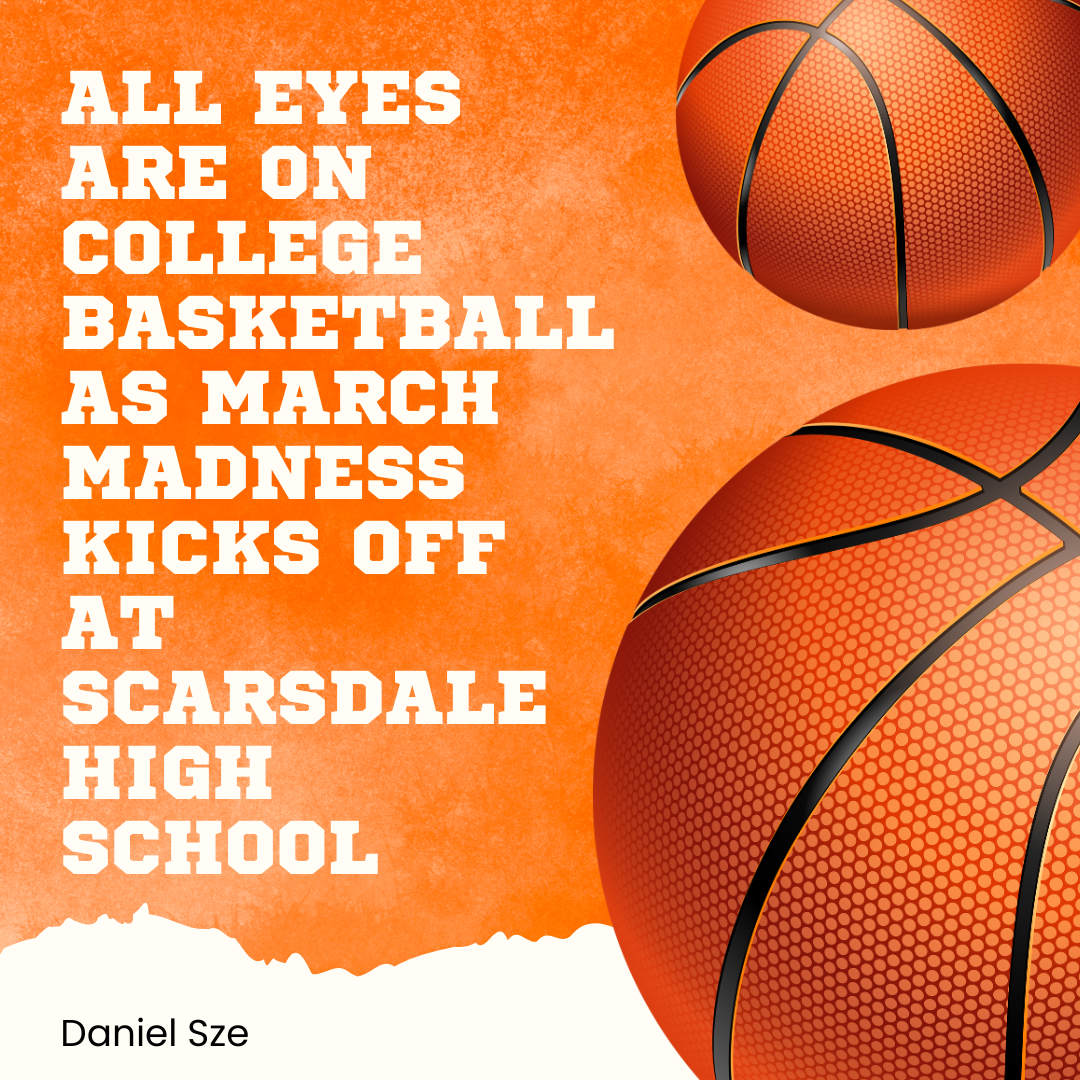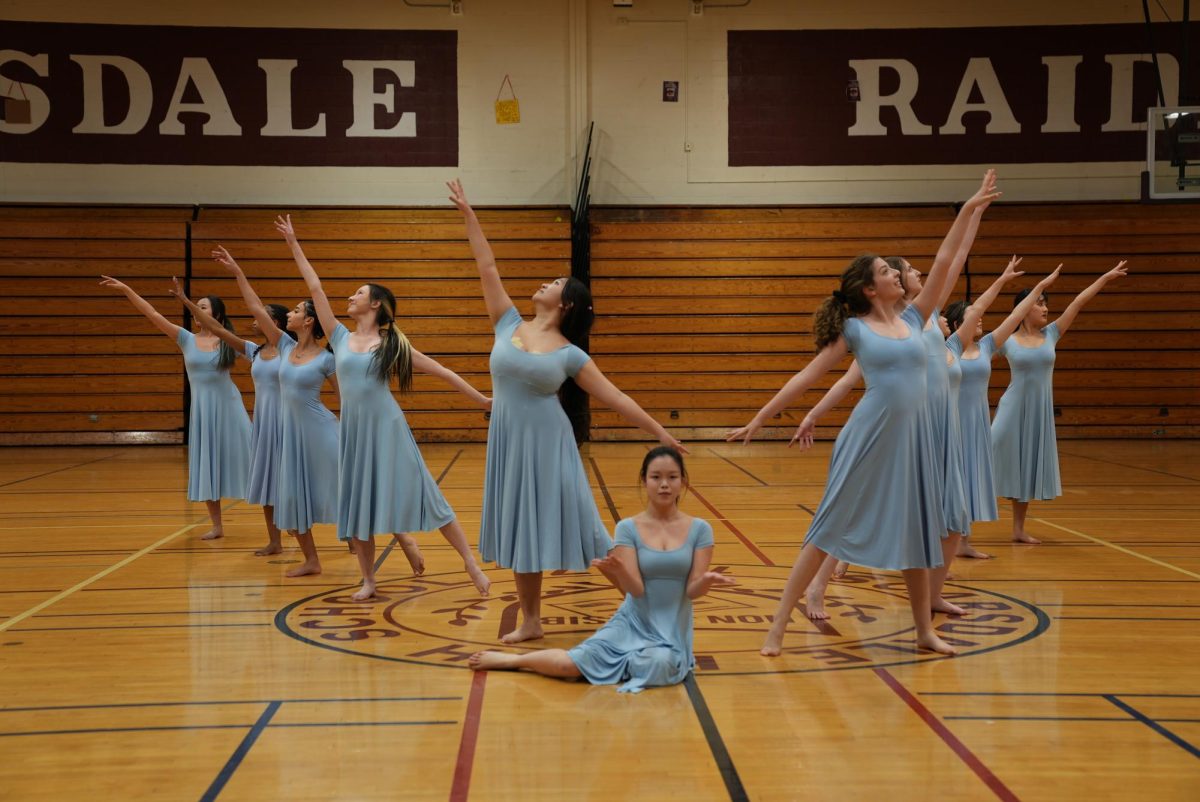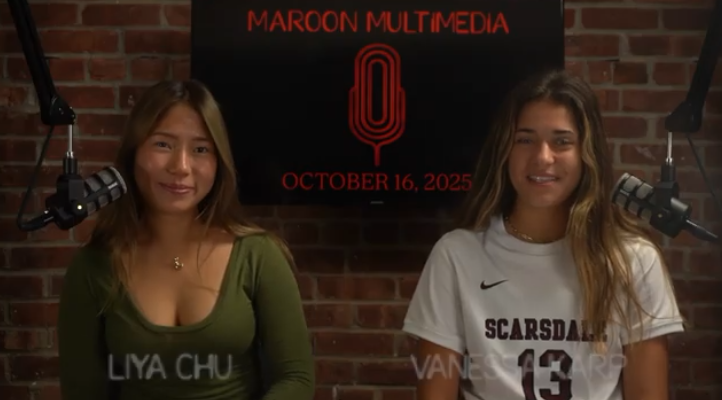Q & A with the Student Organization Behind the Largest Tuition Strike in History
Students at Columbia University protest the school’s ridiculously high tuition costs.
March 2, 2021
One of the things students worry about most when preparing for college is tuition. With a tuition fee of over $60,000, Columbia University is ranked as one of the most expensive universities in the nation. With increasing rates of fees every year, many students feel that the price of attending the prestigious Ivy League school is unfair, especially with classes now being held online due to the pandemic. Last month, the Columbia-Barnard YDSA (Young Democratic Society of America) launched a tuition strike calling for a reduction in tuition fees and an increase in financial aid among other demands. Thousands of students have pledged to withhold their tuition until the university concedes to their demands or comes to an acceptable compromise. Now, with over 4,000 participants, this has turned into the largest tuition strike in history.
Laura Bane, a junior at Columbia University studying economics and political science, and Leena Yumeen, a sophomore at Columbia University studying political science, agreed to an interview with Maroon regarding their work as organizers at Columbia-Barnard YDSA. YDSA is a chapter of the Democratic Socialists of America, the largest socialist organization in the country.
Maroon: What exactly does the Columbia-Barnard YDSA do?
Bane: Columbia-Barnard YDSA is a leftist student organization that promotes awareness of human rights issues both on and off campus, supports leftist campaigns at all levels of government, and engages with movements related to labor unions, the climate crisis, criminal justice reform, and Palestinian statehood.
Yumeen: We do a lot of things. Normally, we do political education, we do campaign work as in trying to achieve things like the tuition strike, we do membership outreach, and we basically forward the goals of socialist organizing.
Maroon: When did you guys start organizing the tuition strike?
Yumeen: We actually started organizing around the idea of tuition remission very early in March because of the economic downturn that was going on… As we’re organizing for tuition reduction, we realized the potential the strike has to address the longstanding problems that Columbia’s administration has that let the tuition get to this point. The reason that tuition has been able to get so high is that the administration thinks that it can exploit students whenever it wants to and students won’t have any ability to fight back… A strike isn’t only a way for reducing tuition fees and increasing financial aid, it is also a way to address this deeper problem… It is very much an organic process that folded in a lot of existing movements at Columbia for years.
Maroon: Why exactly did you launch a strike?
Bane: Columbia-Barnard YDSA launched the strike for many reasons. The first is that Columbia is charging us the same price that they have always charged us for a far lesser product. We are alienated from our peers and professors (despite efforts to normalize completely online learning), and many of us live in time zones that simply are not conducive to attending live classes. Other institutions (e.g Princeton University, Williams College) have responded accordingly by reducing tuition. Why has Columbia not taken the same step? The second reason for the strike is the fact that many students are experiencing increased financial stress due to the pandemic, which is exceptionally tragic in light of Columbia’s endowment of over $11 billion, over $1 billion of which is allotted for unforeseen circumstances. Columbia owes it to its student population to assist them during this time.
Maroon: What are your demands?
Bane: Reducing tuition by 10% for all students, eliminating the required contribution from students on financial aid, divesting from the NYPD and rethinking public safety policies on campus, addressing the harms that the university has placed on the Harlem community, halting gentrification/campus expansion efforts, divesting from fossil fuels (Columbia conceded to this demand), and divesting from Israel.
Maroon: What have been your roles in the strike?
Yumeen: I joined the strike in October. Since then, I’ve been helping out with a lot of administrative stuff—sending emails out to the whole student body, writing articles about the tuition strike, helping to get press coverage, trying to figure out a strategy, basically anything logistical that the strike entails. I’ve also helped a bit with one-on-one outreach and had conversations with students who are unsure about their financial situation and whether or not they were able to go on strike.
Bane: I am one of the lead organizers, which means I help with coordinating COVID-safe in-person events (such as our rally and press conference on January 17), posting the latest updates on Columbia-Barnard YDSA’s social media pages, contacting students to inform them of the progress that we have made with the strike, and contacting administrators to reiterate our demands.
Maroon: Why are you calling for a 10% reduction in tuition fees?
Yumeen: The reason we’re calling for a 10% reduction instead of a specific number is because different schools have different tuitions. We didn’t want to call for a reduction of something like $5000 because for some folks, that’s a smaller percentage of their tuition than others.
Maroon: How has the university responded to the demands?
Yumeen: Before we had gone on strike in late December, early January, Columbia announced that it accepted CARES Act Aid and would be distributing emergency funding to students who requested it. That was a tremendous win because a lot of students were really in need of that emergency funding and Columbia had not taken it earlier. It was almost a direct consequence of our organizing. The day we did go on strike, the administration conceded to one of our demands. They conceded to divest from fossil fuels which was huge because students have been advocating for that for years, and that comes from a lot of the work of a group on campus called the Extinction Rebellion did in 2017.
Bane: They have conceded to our demand to divest from fossil fuels, but they have met our other demands with vague, unacceptable statements that deflect responsibility and ignore the mass amount of wealth that they hold in endowment funds.
Maroon: How has the strike affected the student body’s relationship with the administration?
Yumeen: Before we had gone on strike in late December, early January, Columbia announced that it accepted CARES Act Aid and would be distributing emergency funding to students who requested it. That was a tremendous win because a lot of students were really in need of that emergency funding and Columbia had not taken it earlier. It was almost a direct consequence of our organizing. The day we did go on strike, the administration conceded to one of our demands. They conceded to divest from fossil fuels which was huge because students have been advocating for that for years, and that comes from a lot of the work of a group on campus called the Extinction Rebellion did in 2017.
Maroon: What are the risks of taking part in the strike?
Yumeen: In most undergraduate and graduate schools, tuition was due on January 22nd. The risk of not paying on that date was getting a $150 late fee from the university which a lot of students did, but they emailed the financial aid office and were able to get that late fee waived. That was the only risk associated with striking at that point, and that’s the only risk that anyone has really incurred because of striking. The other thing that will happen is that students will get a registration hold which means that they won’t be able to register for classes for the summer term or the fall term. For students who are graduating, they might get a graduation hold, but that wouldn’t necessarily mean anything until March when you start getting your documents and certificates for your graduation.
Maroon: Can you describe the events and meetings YDSA has held regarding the strike?
Yumeen: We’ve had a lot of events that are means of protest and means of escalation… We also had an international Town Hall which was basically a way for us to connect with other universities that are thinking of going on strike. We had over 100 different universities and colleges register for that, and we spoke about what we’re organizing, how and why we’re doing this, and the importance of considering to replicate this sort of strike action across the country and internationally as a way to protest the commodification of higher education and absurdly high tuition costs.
Bane: We held a very successful event on January 17, where multiple local politicians spoke about a need for drastic changes at Columbia, beginning with a reduction in tuition. Many media outlets attended and covered the event. After this press conference, we occupied the steps in front of Low Library while standing six feet apart from one another, allowing organizers and members of the community to speak and lead chants.
Maroon: What does it mean to you personally that so many students are participating?
Yumeen: It means that I have a student community that is willing to stand together to achieve something for our collective good. That’s something that’s really inspiring to me, it’s really empowering, and it makes me really hopeful. Not just in our student body achieving change, but in our generation and working towards long-term change that betters not just us, but the people that follow us who will attend this university or have dreams of attending this university.
Bane: It has been incredibly inspiring to see Columbia students rise up en masse to demand structural change. This has illustrated the power of the people, no matter how intimidating the upholders of the status quo may seem. When we as students band together, what we lack in funds, we make up for in spirit.
Maroon: What are your future plans for the strike?
Yumeen: We’re in the midst of deciding how we want to move forward by garnering the input of those who are on strike right now and seeing how they feel about things. Regardless of what happens with the strike, the tuition strike isn’t just a strike. It’s a campaign to lower tuition costs because a lot of the work that has gone into the strike hasn’t been striking… It’s more so a campaign that we hope to continue regardless of how much longer the strike continues. The way we plan to continue that in part is continuing to work with student organizations and organizations in the community and continuing to have students protest through in-person and virtual actions that are beyond a strike to make our voice heard. The strike is aimed at long-lasting change and is not necessarily concerned with the fact that classes are virtual. Tuition is ludicrous regardless of whether we are attending them online or in-person, and our organizing has centered around that idea a lot more.
Maroon: Do you have any last words for everyone participating in the strike or for the university?
Yumeen: For everyone that’s participating in the strike, I would love to tell them that it’s been really inspiring to be part of such an amazing movement with so many dedicated people and that regardless of what happens over the coming weeks, we are going to continue to organize until the student body wins tuition relief and wins a more democratic system from the administration. For the administration, I’d like to give a similar message that we will not stop until we get concessions on our demands whether that be through the form of a strike or another way, and we will continue to use our voice to push for that reform on campus.
Bane: Columbia-Barnard YDSA cannot thank you enough for your support. We are making history by changing things for the better.


